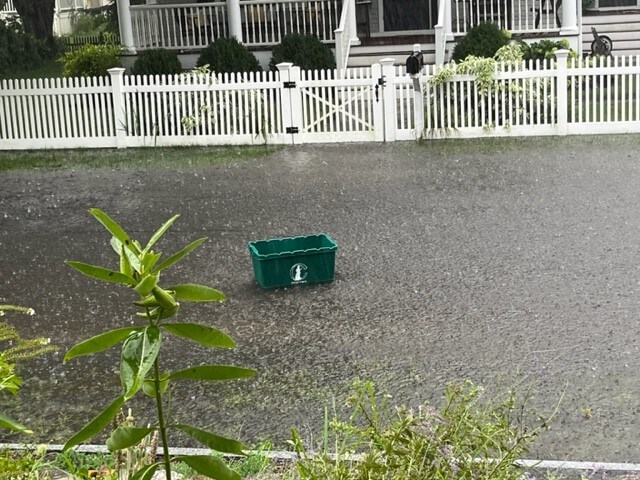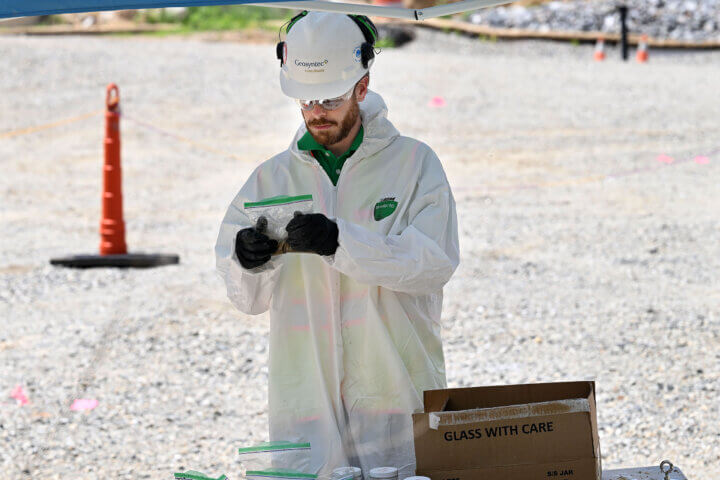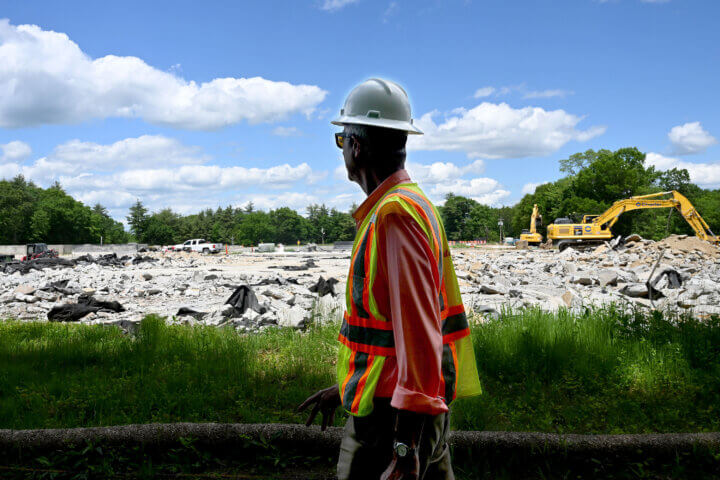As the climate changes, flooding and dangerously high winds are increasingly common, placing greater burdens on municipalities and property owners.
Stately trees, undermined by saturated soil and wind, topple. Buildings and basements flood in areas that historically have not had such problems.
Addressing climate change takes a two-pronged approach: climate mitigation to stop the source of climate change and climate adaptation, or resiliency, to prepare for the changes, said Concord Sustainability Director Eric Simms.
The solutions are separate but related, he said.
Concord is working on both sides of the issue on a town-wide basis.
Mitigation includes moving away from greenhouse gas-producing fossil fuels to electricity where possible. Concord Municipal Light Plant expects to reach a goal of purchasing all sustainable electricity within the year, Simms said. It also has enough capacity for increased electric use as existing heating systems and vehicles are replaced by electric versions.
On the town’s side, the easy things, the “low-hanging fruit,” such as using energy-efficient lighting, are done, he said. Bigger projects will be expensive.
“The town is committed to moving forward on electrifying our town buildings as much as we possibly can,” he said. It will begin a deep energy audit on its buildings, providing a baseline for a strategic and capital plan to prioritize spending.
Town vehicles, when possible, are being replaced with electric models as they go out of service, he said.
The town provides a free composting service which keeps food waste out of the solid waste stream where it would create methane, a potent greenhouse gas.
Concord has been working for two years to be one of ten municipalities participating in the Municipal Fossil Fuel Free Building Program, a pilot program through the Massachusetts Department of Energy Resources. If approved, “fossil fuels will be prohibited in all new residential and commercial construction in Concord with some exceptions,” he wrote in an email.
Town Meeting already passed a specialized stretch code which emphasizes high efficiency standards for new construction.
On the other side of the coin is ensuring the town’s infrastructure is ready for the increasing and unpredictable storms.
“The town is very aware and focused on climate resilience,” Simms said. “The town is leading by example.”
The town and its residents will benefit financially if the town is prepared. Homeowners insurance costs and even the municipal credit rating are partially based on the town’s preparedness.
“It’s a big undertaking,” Simms said, “It’s very expensive.”
The town’s Hazard Mitigation Plan, adopted in April, examined existing hazards and projections to assess risks and set strategies for mitigation.
“There’s a lot of planning happening,” Simms said.
Stormwater is a big challenge and Concord Public Works is concerned with the town’s infrastructure. Limited funding is a key challenge, CPW Director Alan Cathcart wrote in an email.
Weston & Sampson Engineering, Inc. will be evaluating the status of the system, future needs and how they could be funded. That work will include public outreach and stakeholder involvement, Cathcart wrote. CPW may propose a stormwater utility at the 2024 Town Meeting.
The Planning Department is working with a consultant on a transportation and mobility study, Simms said.
On a more immediate basis, the town is well prepared to address emergencies, Simms said.
Residents can register for Code Red alerts by signing up on the concordma.gov website under “quick links” at the bottom of the page.
Two town employees, Assistant Fire Chief Walter Latta and Highway and Grounds Supervisor Aaron Miklosko, are part of the Federal Emergency Management Agency response team. They recently deployed to Vermont to assist after flooding with FEMA Urban Search and Rescue.
CMLP has a tree service ready to call when needed.






